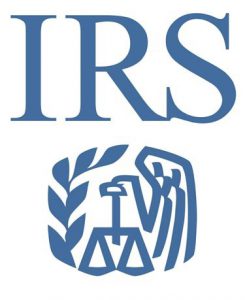
For MOST Taxpayers, Federal Income Tax Returns are due on Monday, April 15, 2019
The Internal Revenue Service has announced that they began taking and processing tax returns beginning January 28, 2019 and refunds to taxpayers will be issued as scheduled.
Nevertheless, many software companies and tax professionals are accepting income tax return information now and promising instant refunds. KNOW that money being promised comes with a charge. As they say, there is NO free lunch, especially around tax time.
For taxpayers who usually file early in the year and have all of the needed documentation there is no need to wait to file. Taxpayers should file when they are ready to submit a complete and accurate tax return. The IRS strongly encourages people to file their tax returns electronically to minimize errors and for faster refunds.
The filing deadline to submit 2018 tax returns is Monday, April 15, 2019 for most taxpayers. Because of the Patriots’ Day holiday on April 15 in Maine and Massachusetts and the Emancipation Day holiday on April 16 in the District of Columbia, taxpayers who live in Maine or Massachusetts have until April 17, 2019 to file their returns.
Also, because of the change required by Congress in the Protecting Americans from Tax Hikes (PATH) Act, the IRS is required to hold refunds claiming the Earned Income Tax Credit (EITC) and the Additional Child Tax Credit (ACTC) until February 15, 2018. The IRS wants taxpayers to be aware it will take several days for these refunds to be released and processed through financial institutions. Factoring in weekends and the President’s Day holiday, the IRS cautions that many affected taxpayers may not have actual access to their income tax refunds until the end of February 2019. The IRS must hold the entire refund — even the portion not associated with the EITC and ACTC.
It is amazing to know that the IRS issues more than 9 out of 10 refunds in less than 21 days. Choosing e-file and direct deposit for refunds remains the fastest and safest way to file an accurate income tax return and receive a refund. However, it is possible your tax return may require additional review and take longer. Where’s My Refund? has the most up to date information available about your refund. The tool is updated no more than once a day so you do not need to check more often.
Your refund should only be deposited directly into accounts that are in your own name; your spouse’s name or both if it is a joint account. No more than three electronic refunds can be deposited into a single financial account or pre-paid debit card. Taxpayers who exceed the limit will receive an IRS notice and a paper refund.
Whether you file electronically or on paper, direct deposit gives you safe access to your refund faster than a paper check.
Adapted from: https://www.irs.gov/help/ita



